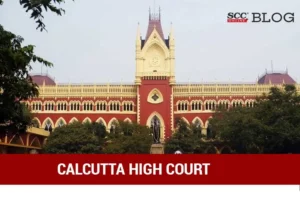Calcutta High Court: In applications filed under Section 340 of the Criminal Procedure Code, 1973 (CrPC), alleging annexture of forged documents with the writ petitions by the writ petitioner, a single-judge bench comprising of Sabyasachi Bhattacharyya,* J., dismissed the applications under Section 340 of the CrPC, finding that the ingredients of forgery were not prima facie established, absence of mens rea, lack of impact on the outcome of the writ petition and no expedient interest of justice to warrant further enquiry. The Court also clarified that the findings were confined to the specific context of the applications under Section 340 of the CrPC and would not affect other legal proceedings against the writ petitioner.
Brief Facts
In the instant matter, the private respondent-applicant filed applications under Section 340 of the Criminal Procedure Code, 1973 (CrPC), alleging that forged documents were annexed to the writ petitions by the writ petitioner, along with false statements intended to deceive the court. The alleged forged documents included a certificate of enlistment from the Madhyamgram Municipality and a leave and licence agreement.
Moot Point
-
Whether the allegations made in the applications under Section 340 of the CrPC fall within the purview of the said provision?
-
Whether the ingredients of forgery and fraudulent use of documents, as outlined in Sections 463 and 471 of the Penal Code, 1860 (IPC), are established in this case?
Court’s Assessment
The Court examined the allegations in light of Section 195(1)(b) of the CrPC, which references Sections 463 and 471 of the IPC and noted that while Section 195(1)(b)(i) pertains to certain sections of the IPC, the primary offenses in this case fall under Section 195(1)(b)(ii), particularly forgery as defined in Section 463 of the IPC and its consequential offense under Section 471. Thus, the Court focused on assessing whether the offenses enumerated in Section 195(1)(b)(ii) were prima facie established.
The Court analysed the elements of forgery under Section 463 of the IPC, which includes making false statements with intent to cause damage or injury, or to support any claim or title. The Court also considered the fraudulent or dishonest use of forged documents under Section 471 of the IPC. However, the Court found that the alleged acts of defacing/interpolation in the documents were not material to the outcome of the writ petition, as even without them, the writ petitioner could have established their claim.
The Court emphasised the absence of mens rea, or criminal intent, on the part of the writ petitioner and concluded that since the commission of the alleged forgery would not have impacted the outcome of the matter regarding the petitioner’s possession, there was no reason to deduce deliberate intention to mislead the court.
Additionally, the Court considered the broader concept of “interests of justice” as required by Section 340 of the CrPC, which stands on a higher footing than individual causes of action. The Court found that the alleged actions of the writ petitioner did not warrant further inquiry in the interests of justice, as they did not constitute a higher category of offenses requiring such action. The Court clarified that its findings were limited to the applications under Section 340 of the CrPC and would not prejudice the outcome of independent criminal cases or investigations against the writ petitioner concerning the same documents.
Court’s Decision
The Court dismissed the applications under Section 340 of the CrPC, affirming that the allegations did not meet the threshold for further inquiry, without any order as to costs.
[Brand Street v. W.B. State Electricity Distribution Co. Ltd., 2024 SCC OnLine Cal 1525, order dated 13-02-2024]
*Judgment by Justice Sabyasachi Bhattacharyya
Advocates who appeared in this case :
Mr. Rajdip Bhattacharya, Mr. Debapratim Guha, Ms. Anchita Sarkar, Counsel for the Applicant
Mr. Sankar Banerjee, Counsel for the WBSEDCL
Mr. Pantu Deb Roy, Mr. Subrata Guha Biswas, Counsel for the State in W.P.A. 16770 of 2022
Mr. Prantick Ghosh, Mr. Prasad Bhattacharyya, Mr. Sandip Dutta, Counsel for the Respondent 7/writ petitioner

